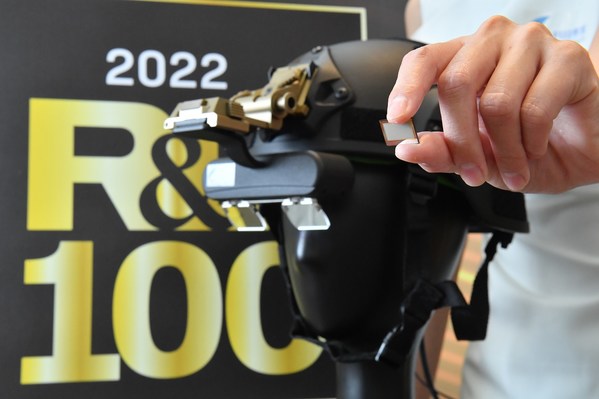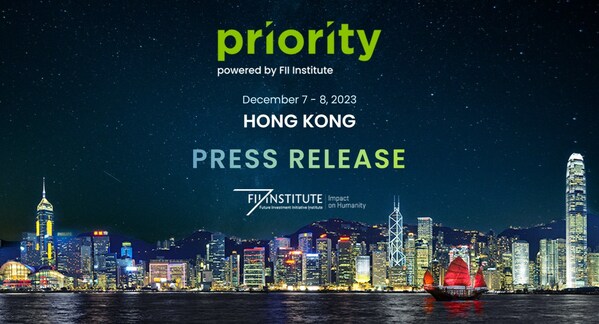 |
ITRI's Micro LED display assists panel manufacturers and other players to meet demand for next-generation AR displays for immersive experiences in the metaverse
HSINCHU, Nov. 16, 2022 /PRNewswire/ -- The Industrial Technology Research Institute (ITRI), Taiwan's largest and one of the world's leading high-tech applied research institutions, today introduced the High Resolution Full-Color Micro LED Display for AR Glasses. This innovation assists panel manufacturers and other industry players to upgrade their technology, expand their Micro LED applications, meet market demand and secure business opportunities in next-generation augmented reality (AR) display products for immersive experiences in the metaverse. The High Resolution Full-Color Micro LED Display for AR Glasses won a 2022 R&D 100 Award in the IT/electrical award category.

ITRI’s High Resolution Full-Color Micro LED Display for AR Glasses has high resolution, high brightness, great compatibility, and low power consumption.
Features and design
The High Resolution Full-Color Micro LED Display for AR Glasses has four key features:
High resolution (> 2,000 PPI): Its ultra-high resolution is ideal for AR applications. High brightness (> 20,000 nits): The Micro LED display provides 10 times higher brightness than the smart glasses currently on the market and can thus work in outdoor scenarios. It meets the brightness requirements of the existing plug-in side-projection AR light machines and can potentially surpass the performance of counterpart displays such as OLED-based designs. Great compatibility (< 0.5 inch): The display and sensor functions are integrated in a compact design, which gives the product a slim look. Low power consumption (< 1 W): By consuming less than half of the energy of conventional smart glasses, the device can be worn for long hours without recharging.The design adopts heterogeneous integration technology similar to semiconductor processes to create micro-displays with wide color gamut by bringing Micro LED, CMOS, and quantum-dot color conversion layers together within a single panel.
Global availability for technology transfer
The High Resolution Full-Color Micro LED Display for AR Glasses is sold as system-oriented industry integration and fabrication platform services, and is available globally for transfer.
"ITRI's High Resolution Full-Color Micro LED Display for AR Glasses has high commercial value and can enhance user experience due to its high resolution, high brightness, device compatibility, compact size and low power consumption. This high resolution Micro LED will help leading global display players to capitalize on the vast range of emerging Micro LED applications. ITRI has assisted manufacturers in pilot production and technology transfers, which have laid the foundation for developing in-vehicle displays and next-gen XR glasses," said Dr. Shih-Chieh Chang, ITRI General Director of Electronic and Optoelectronic System Research Laboratories.
The Micro LED Alliance founded by ITRI
To introduce ITRI's Micro LED technology into augmented reality applications and deliver it from lab to market, ITRI founded an alliance in 2016 to integrate the industry chain horizontally. The alliance connects about 50 industry chain suppliers in advanced materials, semiconductor processes, and precision equipment. It provides comprehensive upstream to downstream solutions to fulfill industry needs for different stages of verification, development, and IP licensing.
About Micro LEDs
Micro LEDs are attracting attention in the fields of wearable electronics, lighting and biomedicine because of their high efficiency, small form factor, and low power consumption. Wearable Micro LED displays have thin, lightweight, and unbreakable features, thus enabling the application of displays on curvilinear surfaces. Impressive color purity and high brightness with low power consumption, high-resolution quantum-dot (QD) array patterning, ultrathin and ultrasmall form factors make QD-based Micro LEDs promising for flexible and wearable electronics. Micro LEDs are suitable for advanced display applications such as smartphones, wearable watches, microprojectors, AR/MR displays, automotive heads-up displays, ultra-high definition (UHD) (>4K resolution) televisions, and large-scale monitors including outdoor TVs, sports and advertisement signage.
The Micro LED manufacturing process
The manufacturing process for the High Resolution Full-Color Micro LED Display for AR Glasses transforms the current way of making a display module in the following aspects: It requires semiconductor-grade device process, micron (μm) grade accuracy of assembly and highly accurate yet fast-paced testing methodology. These steps usually require an upgrade or improvement in equipment, operation, logistics, materials and training.
The Micro LED display manufacturing process is different from the traditional LED manufacturing process in that Micro LED display technology requires a high-efficiency micrometer-grade LED process and heterogeneous bonding technology with high precision and high resolution on active backplane. The overall process requires additional semiconductor processes such as high-precision photolithography, CMP planarization, plating and high-precision alignment wafer bonding. Compared to the class 1000 cleanroom process used by traditional LEDs, a Micro LED lab needs a class 10 cleanroom to heterogeneously integrate all components without concerns for particle contamination.
About ITRI
Industrial Technology Research Institute (ITRI) is one of the world's leading technology R&D institutions aiming to innovate a better future for society. Founded in 1973, ITRI has played a vital role in transforming Taiwan's industries from labor-intensive into innovation-driven. To address market needs and global trends, it has launched its 2030 Technology Strategy & Roadmap and focuses on innovation development in Smart Living, Quality Health, and Sustainable Environment. It also strives to strengthen Intelligentization Enabling Technology to support diversified applications.
Over the years, ITRI has been dedicated to incubating startups and spinoffs, including well-known names such as UMC and TSMC. In addition to its headquarters in Taiwan, ITRI has branch offices in the U.S., Europe, and Japan in an effort to extend its R&D scope and promote international cooperation across the globe. For more information, please visit https://www.itri.org/eng.
Media contact:
Kevin Martin
PRforITRI@bospar.com
 2 years ago
374
2 years ago
374 





 English (United States)
English (United States)